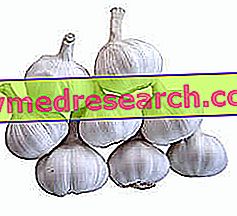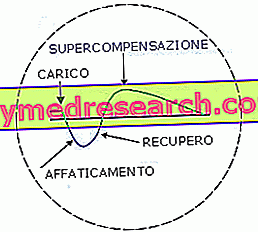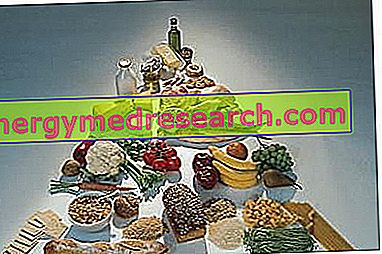
Heat Effect
As we have seen, garlic has many healing properties, but there is a foresight to be kept in mind: if you want to use garlic as an antibiotic, you must consider the fact that this loses many of its properties during cooking, so it should be avoided subject it to too high temperatures and / or prolonged cooking.
Side effects
Garlic, apart from individual allergies or intolerances, does not have major side effects; however, continued use can bring odor to the breath and the skin.

Do not use during pregnancy and lactation.
Drug interactions
Garlic extracts have numerous drug interactions, so those who intend to take this product as a therapy must be very careful and above all seek advice from their doctor or pharmacist.
The main drug interactions concern:
- Warfarin and antiplatelet agents: increased risk of bleeding;
- Saquinavir (a drug used as an antiviral in HIV, is a protease inhibitor): reduction of bioavailability;
- Ritonavir (antiviral protease inhibitor drug): increased concentration;
- Vitamin E: enhancement of antithrombotic effects;
- Pentoxifylline and Ticlopidine (antithrombotic and antiplatelet drugs): increased risk of bleeding;
- NSAIDs: possible increase in gastrolesivity;
- Paracetamol: reduction of plasma concentration of oxidative metabolites and hepatotoxicity;
- Clorzoxazone (muscle relaxant drug): 40% reduction in the bioavailability of the drug;
- ACE inhibitors: reduces the hypotensive effect of the drug.
Garlic supplements
Commercially available forms of garlic
There are numerous garlic-based preparations on the market, often with very different concentrations of active ingredients.
To better orient oneself it is always necessary to pay attention to the indicated percentages of alliin and allicin: the higher they are, the greater the likelihood that the other components of which garlic is rich are also present.
The product closest to the starting drug is that of dried garlic powder, which is usually sold in capsules.
However, essential oils obtained by steam distillation can also be sold, or macerated oils obtained by extraction of the bulbs ground with vegetable oils and packaged in soft gelatin capsules: these products have proved to be almost ineffective.
Mode of use
In order to manifest the desired therapeutic effect, it is to be kept in mind that the doses are fundamental, and that in the case of sustained dosages it is preferable to take them over the course of 24 hours so as not to irritate the stomach.
For therapeutic purposes it is recommended to take about 4 g a day of fresh bulbs, which ensure the intake of about 40 mg of alliin, from which 20 mg of allicin are released.
- If you want to take garlic for preventive purposes and as a general tonic you need to take 2 to 3 cloves a day for periods of at least 3 weeks.
- For the treatment of diarrheal phenomena take 5 to 10 segments throughout the day.
- To treat small wounds, insect bites or mycosis you can resort to garlic juice diluted in water, or to a disinfectant solution prepared by crushing 5 to 10 cloves of garlic and diluting the juice thus obtained with a ratio of 1:10 in alcohol 30%.
The product obtained can be stored in the dark for a couple of months.
- Tincture of garlic as a tonic: squeeze 400g of peeled garlic cloves and place them in an airtight container together with 250ml of grappa or vodka. Leave to rest in a cool, dark place for 2 weeks, then strain with gauze and leave to rest for another week.
The tincture can be taken 2 or 3 times a day with a dosage of 15 drops at a time.



